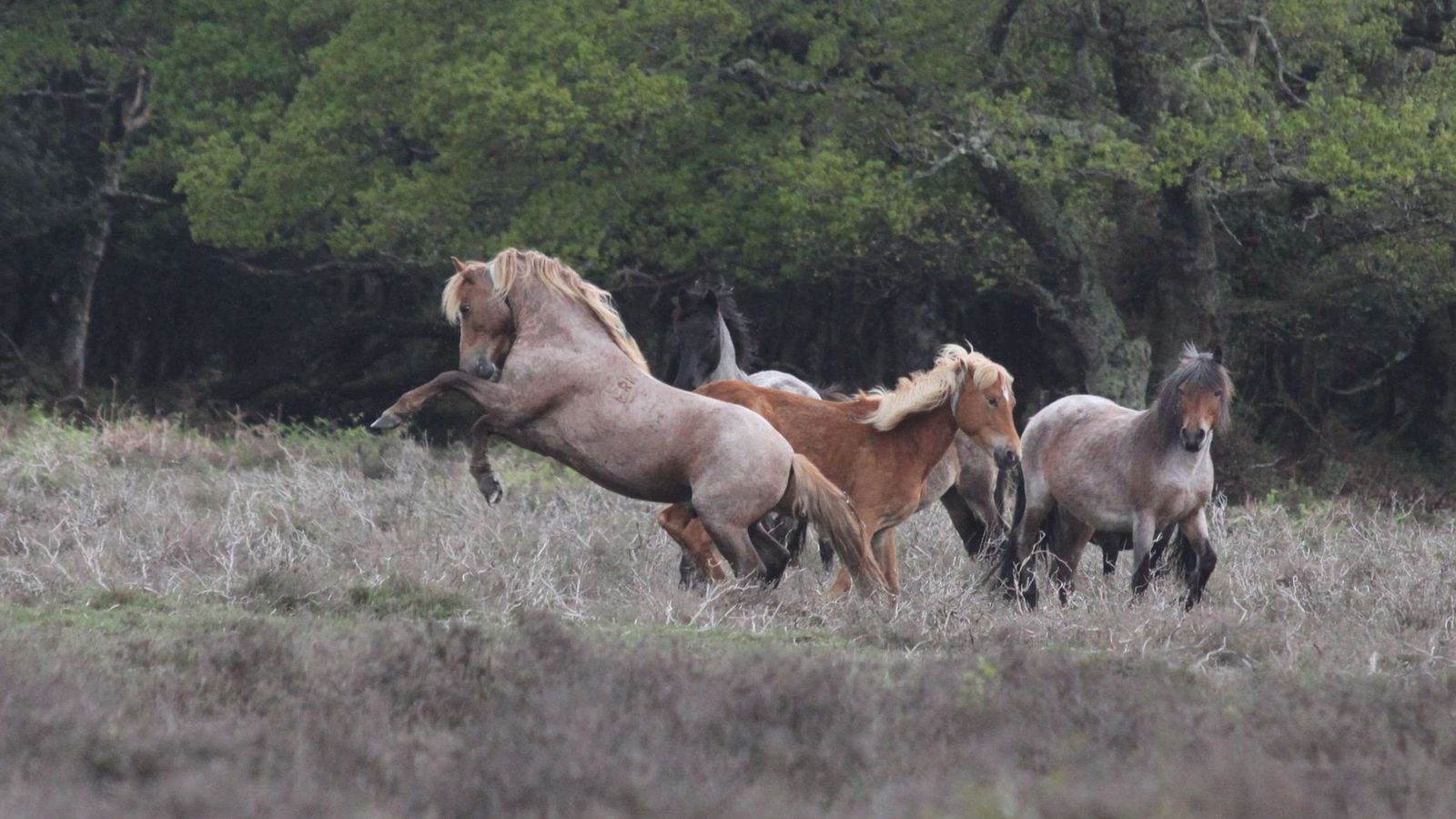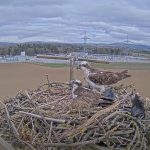Give “frisky teenage” stallions a wide berth as they chase female ponies around the New Forest during breeding season, visitors are being urged by forest stewards and pony owners.
“Drive across the forest with even more care than you would normally, as the stallions are herding ponies across the road,” said Gilly Jones, one of the commoners who owns ponies roaming wild in the forest.
Dog walkers should also keep their pets on leads if they have “even the slightest inclination they might worry the livestock”, she said.
A stallion’s mind is “not on a vehicle, it is not on a dog walker, it is in a very different place at the moment”, she added.
“They are a bunch of horny teenagers. Very frisky.
“The stallions have been in a field all together and haven’t seen a girl for ten months. The ponies haven’t seen a boy for ten months. It gets quite enthusiastic.”
The forest is home to around 5,000 ponies, including the New Forest breed, Shetlands and part-breeds.
Farmers paid to protect nature in dramatic overhaul of subsidies scheme
‘Little good news’: Govt on track to miss two-thirds of its own environment targets
Humanity is ‘treating nature like a toilet’ – here’s why, according to UN chief Antonio Guterres
Stallions are kept in an isolated field for most of the year, to help manage population numbers. This year, 18 have been “turned out” to roam freely for eight weeks.
Breeding at this time of year ensures foals are born from April onwards, when there is plenty of grass and the weather is warmer, said Ms Jones.
The ponies, pigs and cattle that roam the forest help manage the ecosystem, said Sue Westwood, clerk to the custodians of the forest, the Verderers, which regulate the turning out of ponies.
“The forest wouldn’t be what it is without the ponies, cattle and pigs,” said Ms Westwood.
“They all contribute to the conservation. They are known as the architects of the forest. Otherwise, it would be a jungle, an overgrown wilderness that we couldn’t enjoy.”
But they have “lots of problems” with people feeding them, she said. The ponies can “turn nasty” and kick or bite people when they get jealous about the food, “like children in a sweet shop”, she said.
That’s why, from 1 July, people can be fined for petting or feeding the ponies, added Ms Westwood.
Watch the Daily Climate Show at 3.30pm Monday to Friday, and The Climate Show with Tom Heap on Saturday and Sunday at 3.30pm and 7.30pm.
All on Sky News, on the Sky News website and app, on YouTube and Twitter.
The show investigates how global warming is changing our landscape and highlights solutions to the crisis.






















